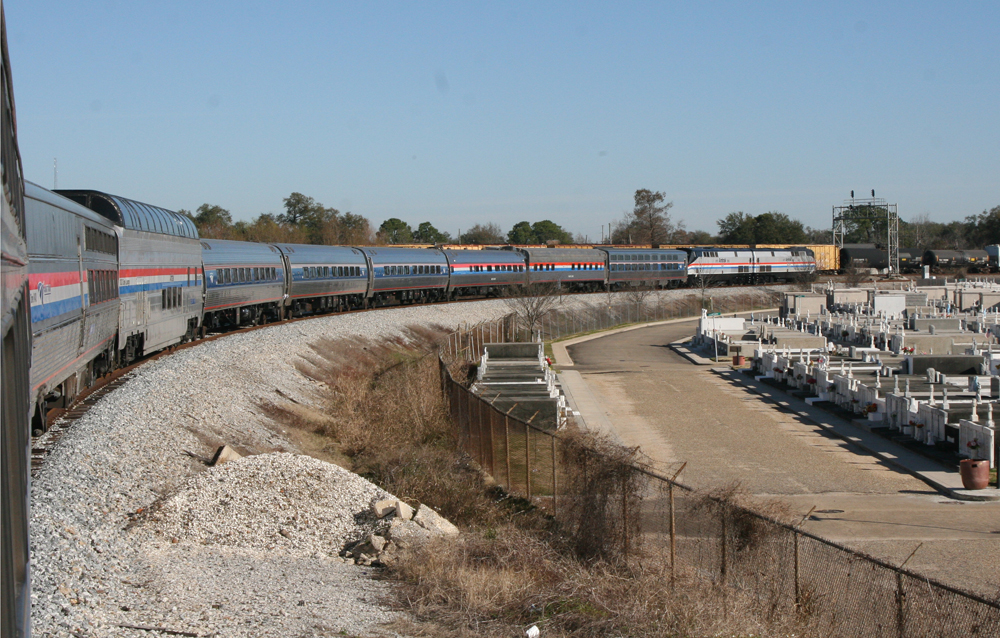
MOBILE, Ala. — The Super Bowl will be played in New Orleans at Caesars Superdome on Sunday, Feb. 9, 2025. Mardi Gras’ Fat Tuesday celebration, perhaps the biggest event in both Mobile and the Crescent City, happens to be late next year: March 4.
The race is now on to begin Amtrak Gulf Coast service by then, following the Mobile City Council’s votes Tuesday supporting that service [see “Mobile, Ala., council votes to approve …,” Trains News Wire Aug. 6, 2024].
“That’s the goal: get the service up and running for those big events,” Southern Rail Commission Chairman Knox Ross tells News Wire, adding, “It would be a great way to show the public that you are in the middle of the action.”
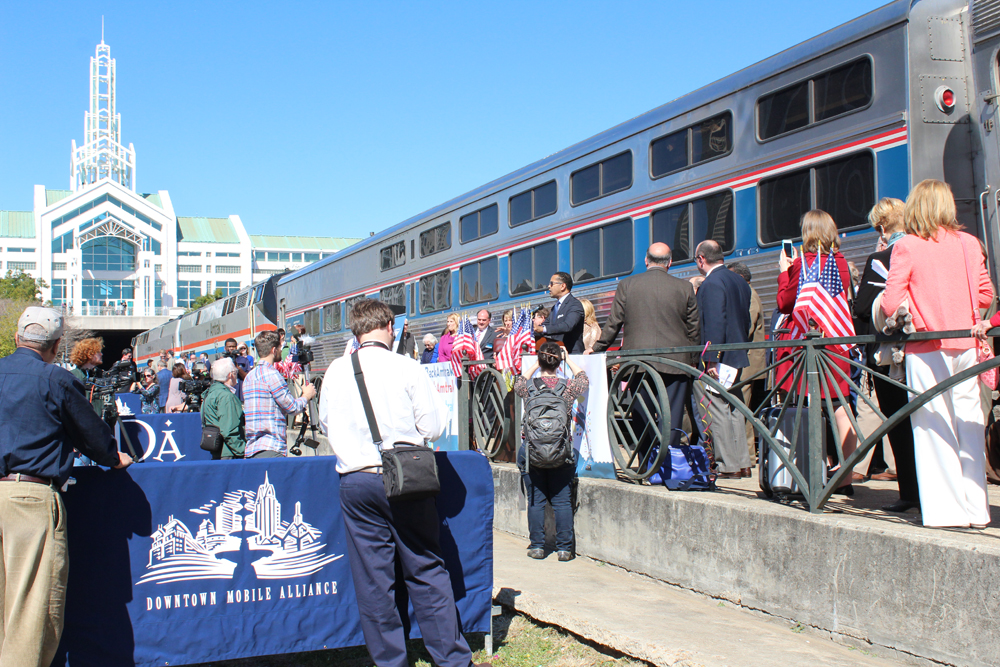
Whether the two daily round trips can be launched in time will be a challenge. Tuesday’s approval of a three-year station property lease and operating agreement with Amtrak “checks a couple of boxes that are important in moving this project forward,” Ross says.
Though Amtrak and CSX have agreed on specifications for the pocket track and station platform at Mobile, site preparation in what is now a parking lot can’t begin until the operating and funding agreements are signed. Possible relocation of fiber optic cables could add to the delay.
Similarly, putting funds to work from the $178.4 million CRISI grant approved in 2023 — for track and signal improvement deemed necessary by CSX, Norfolk Southern, the Port of Mobile, and Amtrak — can only now be authorized. Then construction contracts for each of the projects will need to be finalized and crews mobilized.
Those parties only reached agreement under the threat of a Surface Transportation Board settlement that none of the parties — including Amtrak — wanted imposed because it would set a jurisdictional precedent of STB oversight of their business. Even so, almost a year of legal wrangling ensued [see “Gulf Coast service awaits Mobile station track, PTC gap closure,” News Wire, Sept. 9, 2023] while the City of Mobile attempted to negotiate contract provisions acceptable to Alabama politicians from Gov. Kay Ivey on down, on record as ideologically opposed to any state funding of passenger trains.
Instrumental in eventually moving the process forward culminating in a unanimous vote Tuesday was the positive influence of CSX management.
“Since Joe Hinrichs has taken over at CSX as CEO, it’s been a much different organization to deal with,” says Ross. He also lauds Jane Covington, the company’s government affairs officer, who “has done everything she can to get us over the finish line.”
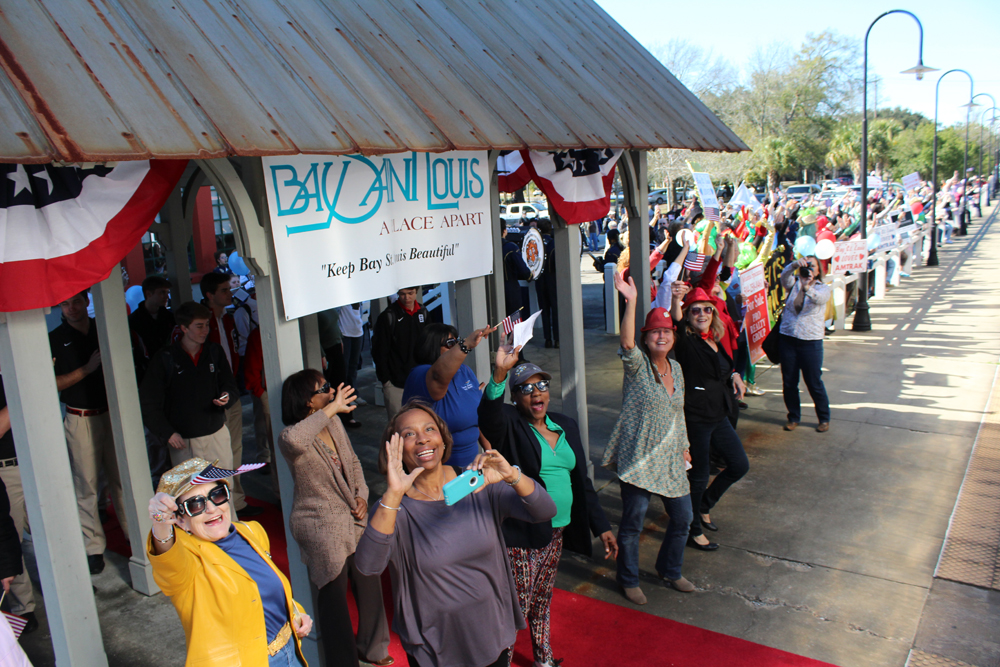
While construction commences over the next several months, the Southern Rail Commission plans on marshaling its limited resources to work with the New Orleans and Mobile convention bureaus and the Mississippi towns of Bay Saint Louis, Gulfport, Biloxi, and Pascagoula to develop promotional plans on what so far is a shoestring budget. “The way this chain of pearls of Mississippi communities lays out, it is just perfect for them,” Ross observes. He says, “Tourism organizations along the Gulf Coast believe that having two round trips allows people to go for the day or go for the night and be back home the next morning.”
The SRC’s annual funding from the three states totals $200,000: $70,000 each from Louisiana and Mississippi, and $60,000 from Alabama. For the service launch to be successful, whenever it occurs, the organization needs to staff up to guide promotional efforts and manage Amtrak’s operational priorities. But the Federal Railroad Administration has yet to finalize funding from the $400,000 Interstate Rail Compact grant the agency awarded to the SRC in March. Meanwhile, the $500,000 Corridor Identification grant the FRA awarded the corridor can only be used for more planning, not creating capabilities to actually run trains.
The Commission is working with Amtrak to establish the upcoming service as a top-of-mind mobility alternative in the region; once construction progresses to the point when a launch date can be realistically targeted, the name of the trains will be announced.
Nevertheless, its hard to believe that Ross and his fellow commissioners began making the case for meaningful Gulf Coast passenger service well over a decade ago. The first tangible evidence of their efforts was an Amtrak inspection trip on the Sunset Limited’s former route from New Orleans to Jacksonville, Fla., on Feb. 18-19, 2016. The plan floated back then was for a daily New Orleans-Florida train to be augmented with a daily New Orleans-Mobile round trip, but host railroad roadblocks and the Port of Mobile’s congestion concerns torpedoed that idea.
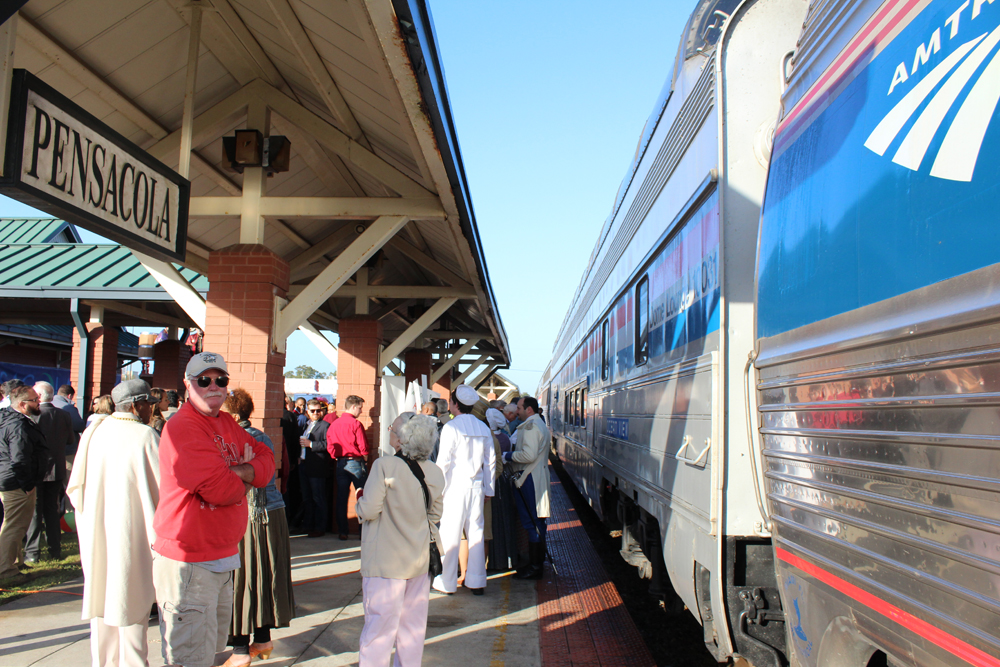
Any thoughts of extending beyond Mobile are blocked by an amendment to the lease and operations funding provisions approved Tuesday by the city council, which allows the city to rescind its support if Amtrak were to operate trains east or north of Mobile during the next three years. (Expanding frequencies beyond two round trips a day is also prohibited.) After that, when the city isn’t on the hook for funding — regardless of the transportation and commercial benefits that may accrue — a future city council can revisit the station lease terms.
The challenge now is for the SRC and Amtrak, along with newly cooperative CSX, to make the best of the hand they’ve been dealt.







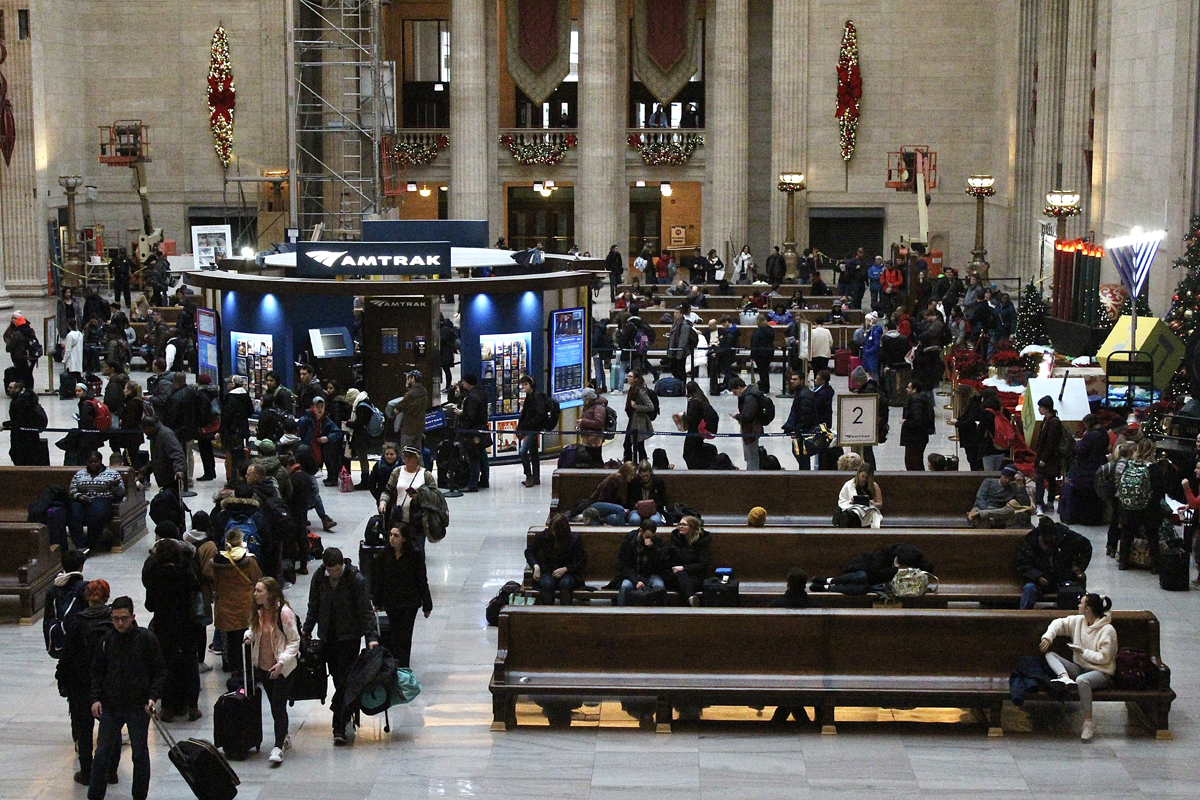






I wonder if the completely bizarre prohibition on service east/north of Mobile is a further sap to placate the Port of Mobile, which expressed an absurd fear of two passenger trains a day passing momentarily by its approach tracks? Or was it because CSX likes to let freights already sit on the mainline for extended periods. In any event the pockedt track that is part of the preparation should at least resolve the yard/port approach fears.
Or was it cover for the state of Alabama when/if it decides not to provide on-going funding after three years, by blocking logical extensions of the route that could improve its financial performance?
What was CSX role if any in this?
If enforced it precludes reconnecting Florida directly to the Gulf Coast and the west, as well as Mobile back to Montgomery (or Birminham) and from there on to the great cities that cluster between Atlanta, Charlotte and New York. Hopefully some remotely sane explanation may yet emerge for this foolish trap.
A railroad extorting more money than necessary to accommodate the service & City/State leaders undermining it to fail. The losers will be public who could probably use an additional transportation option it should make them think twice in the next state & local elections.
Mr. Riley you are exactly correct in everything you said. Our city and state government here in Mobile fully intend to kill this train ASAP. They take the federal dollars to up grade the track of a multi million dollar company and meanwhile not accept federal dollars to feed needy school children during summer vacation so as not to increase the federal deficit. The absolute hight of hypocrisy in my opinion.
That’s too bad, I used to ride the Sunset Limited from Jax to LA, this route would complete a route Floridians and others around this part of the country, since the discontinuance of the Limited, in order to reach LA, one has to take three trains, Jax to NYC, or Washington, D.C. from there to Chicago, and then on to LA, a very expensive trip, or drive to New Orleans, passenger service in the US is sub par at best, one reason why European, and Japanese trains do well, they run on their own tracks, you can take a train almost anywhere, yes train operation are different, but until the US figures this out, good passenger service in the US is a pipe dream.